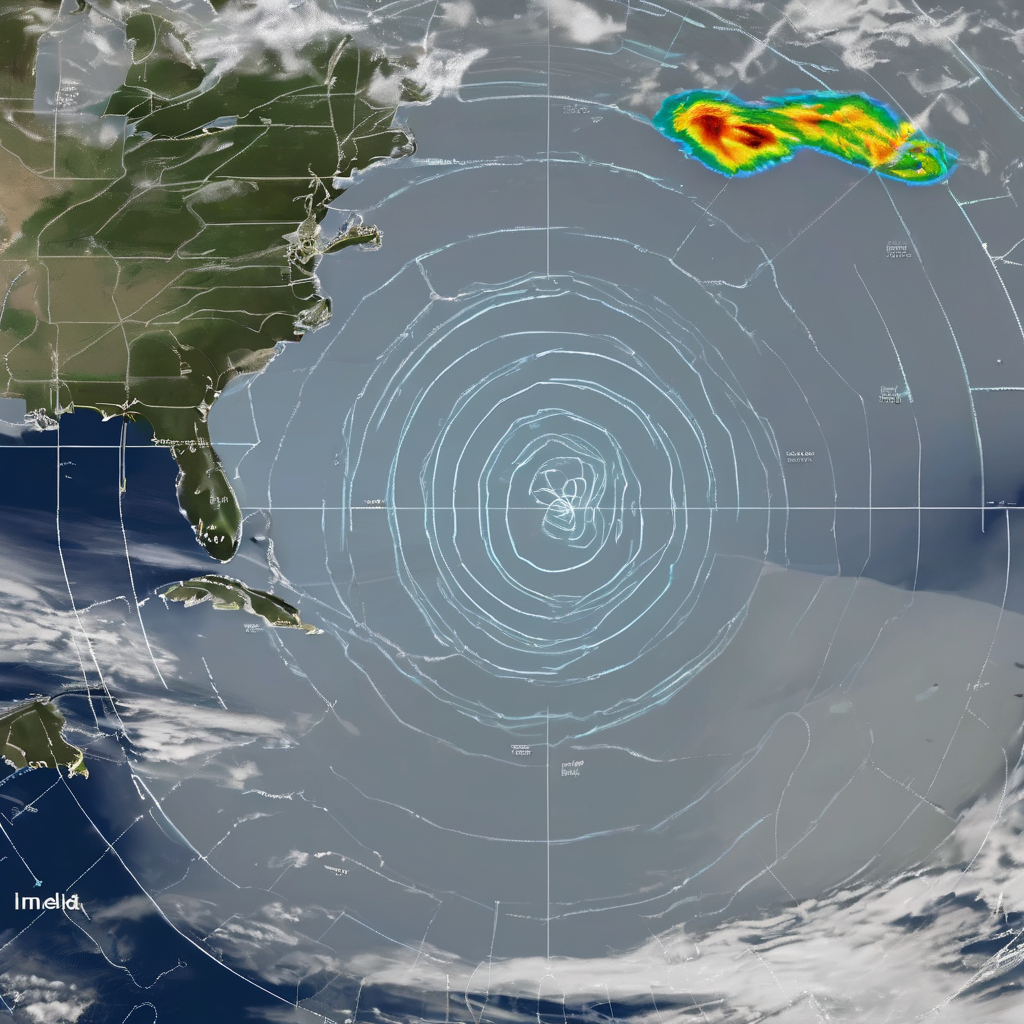Authorities in the Bahamas have closed most schools in anticipation of Tropical Storm Imelda, which has been delivering heavy rainfall across the northern Caribbean. The storm has already had a tragic impact in Cuba, where two fatalities have been reported due to its effects.
As of Monday, Imelda was situated approximately 165 miles north of Great Abaco Island in the Bahamas, an area still recovering from the devastation of Hurricane Dorian, which hit as a Category 5 hurricane in 2019. With maximum sustained winds of 70 mph and a northeast movement at 7 mph, forecasters expect Imelda to strengthen into a hurricane by Tuesday morning, subsequently moving out to sea.
A tropical storm warning that had previously been issued for parts of the northwestern Bahamas, including Great Abaco and Grand Bahama Island, was lifted early Tuesday. Power outages were reported in several areas, prompting the closure of government offices and mandatory evacuation orders for some islands over the weekend.
In Cuba, Prime Minister Manuel Marrero announced that two individuals lost their lives in Santiago de Cuba province following landslides associated with Imelda. The storm has caused significant flooding and landslides, isolating 17 communities in the region, which collectively house over 24,000 residents. Additionally, in Guantánamo province, around 18,000 people have been evacuated due to the storm’s impacts.
Imelda is projected to deposit between 4 to 8 inches of rain in the northwest Bahamas and 2 to 4 inches in eastern Cuba.
Meanwhile, Hurricane Humberto has weakened to a Category 2 storm, presently churning in open waters and expected to influence Imelda’s path, steering it away from the southeastern United States coast. According to hurricane experts, the interplay between the two storms may create a rare phenomenon known as the Fujiwhara effect, where two systems orbit around each other.
Moisture from Imelda is anticipated to reach the Carolinas, bringing heavy rain primarily to the coastline from Charleston to Wilmington. Wind gusts may reach up to 40 mph along the coast, along with the potential for dangerous surf conditions. South Carolina’s Governor Henry McMaster has mobilized search and rescue teams, while North Carolina’s Governor Josh Stein declared a state of emergency ahead of the storm’s anticipated impacts.
In Florida, while Imelda is not projected to make landfall, its effects are still being felt. Crews at the Loggerhead Marinelife Center in Juno Beach have rescued turtle hatchlings washed ashore by turbulent surf, emphasizing the far-reaching consequences of tropical storms even when they bypass certain regions.
As for Bermuda, officials are bracing for a challenging week with both storms threatening to approach closely. National Security Minister Michael Weeks has urged residents to take actionable steps to prepare, underscoring the potential danger posed by Hurricane Humberto followed by Imelda.
Flights to and from the Bahamas have been canceled, with airports expected to resume operations only when conditions improve. As communities across the affected regions prepare for the continued threat from these storms, a sense of resilience remains evident as individuals come together to navigate these challenging circumstances.
